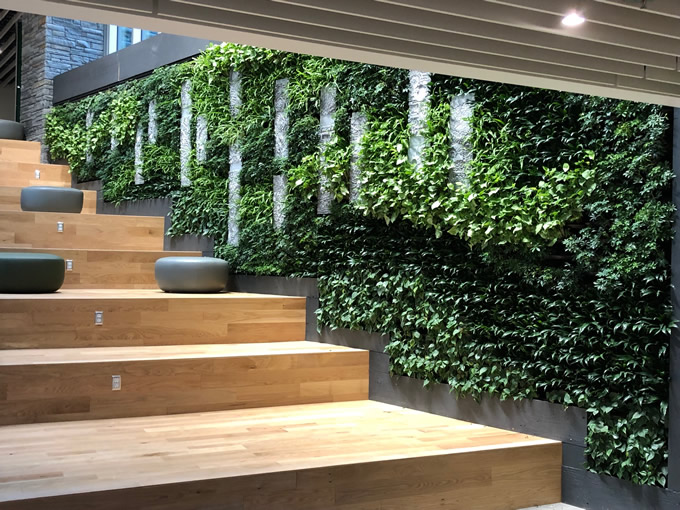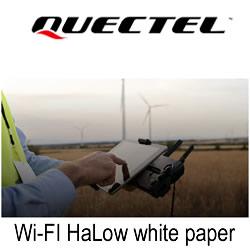GSky® Supplies Versa Wall® Indoor Living Wall to Maryland’s Universities at Shady Grove
Delray Beach, FL – GSky Plant Systems, Inc., a global industry leader in the design and production of interior and exterior green walls, announces it supplied a Versa Wall® Indoor Living Wall for the new Biomedical Sciences & Engineering (BSE) facility at Universities at Shady Grove (USG), Montgomery County, MD. A ribbon cutting for the unique building, which showcases sustainable design, was held on November 17, 2019.

The Versa Wall® installation is part of a biophilic plan to bring interior and exterior campus environments into the building atrium, reinforcing the visual connection between the indoor and outdoor environment. Incorporating soft curves, the Versa Wall® features plants that are primarily shades of green complementing the interior of the building’s lobby area. A featured sculptural element composed of aluminum panels contributed by the school’s arts program is attached to the wall.
“The living wall is meant to almost appear as an extension of the east courtyard exterior environment flowing into the building,” said Christopher Case, Project Engineer for Gilbane Building Company.
Engineered with a unique tray design for simplified installation and maintenance – plus higher water efficiency – the Versa Wall® is the most versatile system on the market. Featuring a modular design that allows for quick and easy installation, the Versa Wall® can be easily configured to any size and installed around doors, windows, corners, stairs, or columns. It can also incorporate other design elements, including artwork. Each Versa Wall® plant remains in its own four-inch pot, so full-grown plants can be swapped in quickly and cleanly, and walls can be redesigned at minimal cost to add seasonal color.
The Versa Wall® system does not require constant watering, which promotes plant health and supports sustainability. Featuring patented vertical irrigation technology, the Versa Wall® system cuts water waste, prevents oversaturation, and boosts cost efficiency by automatically running a timed gravity-based irrigation cycle less than once a week, while other walls on the market may run several cycles each day. Completely customizable with vibrant tropical plants, the Versa Wall® enlivens decor, cleans the air, positively impacts the acoustic environment, and enhances productivity.
###
About GSky Plant Systems, Inc.
Versatile. Reliable. Proven.
Founded in 2004, GSky Plant Systems, Inc. is a leading provider of vertical Living Green Walls in North America, Europe, Australia and the Middle East in our 15th year in business. The company was founded based on the explosive growth of green technology. GSky® Living Green Walls are irrigated by low flow drip emitters on programmable controllers and in many cases can be equipped with recycling components to create an extremely efficient low water usage system. GSky® has offices in Delray Beach, Florida and Vancouver, British Columbia, with sales offices in Denver, Colorado; San Clemente, California; and Hamburg, Germany. GSky’s Versa Wall®, Versa Wall® XT, Pro Wall®, and Basic Wall® systems offer indoor and exterior options for most environments. For more information about GSky Plant Systems, visit https://gsky.com, call 561-894-8688, or email marketing@gsky.com.
Comments (0)
This post does not have any comments. Be the first to leave a comment below.
Featured Product

